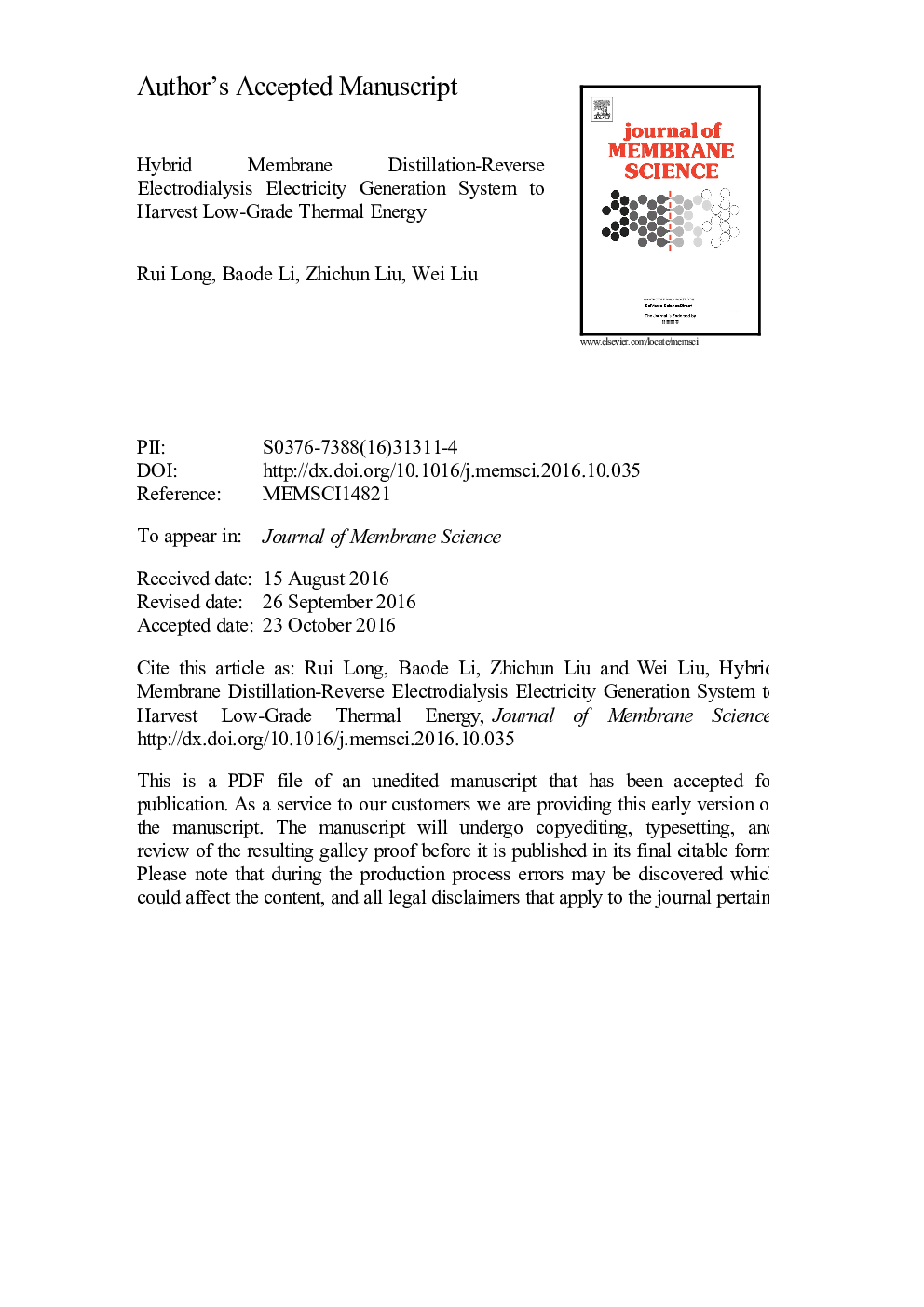| Article ID | Journal | Published Year | Pages | File Type |
|---|---|---|---|---|
| 4989395 | Journal of Membrane Science | 2017 | 35 Pages |
Abstract
An alternative hybrid membrane-based electricity generation system that operates as a heat engine is presented to convert low-grade heat into electricity. This system consists of membrane distillation (MD), which absorbs thermal energy from the heat source and generates high concentrated salty stream, and reverse electrodialysis (RED), that converts the Gibbs free energy of mixing from the produced salty streams into electricity. The MD-RED system was simulated by considering both the heat and mass transfer characteristics in the thermal separation (MD) and electricity generation (RED) procedures with heat source temperature varying from 40 °C to 80 °C and the MD feed NaCl concentrations of 1.0, 2.0, 3.0, 4.0, and 5.0 mol/kg. The performance specifications, i.e. the mass recovery rate, specific heat duty, heat absorbed, and power output are systematically discussed, which are directly impacted by the relative MD permeate/feed solution flow rate. Results reveal that there exists an optimal relative permeate/feed solution flow rate leading to the maximum electrical efficiency of the proposed MD-RED system under given operating temperatures for different MD feed NaCl concentrations. Moreover, approximate analytic expressions of the power output and the electrical efficiency have been deduced. Larger MD feed NaCl concentration induces greater electrical efficiency. The electrical efficiency of the hybrid MD-RED system reaches 1.15% operating between 20 and 60 °C with the MD feed NaCl concentration of 5 mol/kg, which indicates its potential application for low-grad heat harvesting.
Related Topics
Physical Sciences and Engineering
Chemical Engineering
Filtration and Separation
Authors
Rui Long, Baode Li, Zhichun Liu, Wei Liu,
